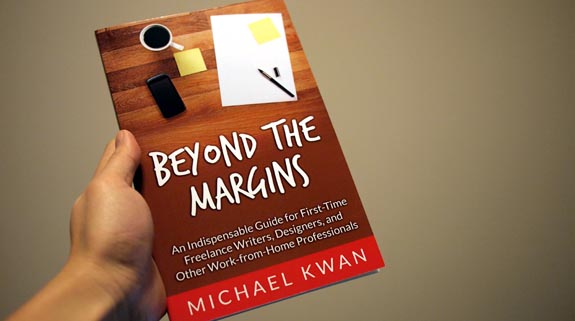Are you tired of working at your 9-to-5? Do you want to be your own boss and work from the comfort of your own home office, setting your own schedule and doing work that you actually love to do? You might want to become a freelancer.
I was in your shoes a little over eight years ago when I decided to quit my day job and pursue freelance writing full-time. One of the problems I encountered very early on was that I didn’t really have a mentor or any sort of real guidance for this new career. There was a lot of trial and error, a lot of learning along the way. I made my share of mistakes, to be sure, but I’m still here and I’m still working from my home office as a full-time freelance writer.
As John has said so many times before, working for yourself isn’t really so much about the money as much as it is about the “time freedom” that it can afford you. That is real freedom of freelancing, because I can work when I want, where I want, for whoever I want. Of course, this raises another concern: there are potential clients out there who are nothing more than scam artists. They sense that you’re just starting out as a freelance writer, graphic designer, app developer, web developer or whatever else you choose to do. And they want to take advantage of you for some free labor.
Freelancer Beware
Through my own personal experience as a freelancer, I’ve encountered several scam artists and have come to identify some of the key warning signs. If someone wants you to take on a project for them, but one of these factors is involved, you may be best advised to steer clear.
- “Exposure”: You may have come across postings on Craigslist where the person says that they’ll give you an “opportunity” to “expand your portfolio” and get “exposure” in front of a new audience. This means they aren’t going to pay you and you’re effectively working for free. Any self-respecting publication should be compensating its contributors fairly.
- No Pre-Payment: In general, unless you have complete trust in a new client, you should be asking for some sort of deposit before starting on a new project. If this person absolutely refuses to provide any pre-payment whatsoever, you could be setting yourself up for a situation where you do the work and they disappear. More often than not, this isn’t worth the gamble.
- Conditional Payment: This is somewhat related to the previous point. It could be fine if you accept a scheme where you are paid based on performance, since you should stand behind your work, but the payment shouldn’t be completely conditional on something outside of your control. I had a client who “guaranteed” he would get the article on the first page of Digg. I was naive and accepted this, but the article never made it, largely because of his lack of ability to promote it. This wasn’t my fault, but I ended up not getting paid.
- Pay to Apply: You are the one providing the service, so you are the one who should be getting paid. If this client requires you to pay a fee in order to access some software, website or a database, there’s a good chance that it’s more of a pyramid scheme rather than legitimate freelance work. You wouldn’t expect a plumber to pay you for an “opportunity” to fix your toilet, right?
- Targeting Students: There are postings on bid sites and Craigslist that say the gig is “perfect for students and work at home moms.” They might say it’s a great chance to “make some extra money on the side.” What this really means is that the pay is going to be quite low for the amount of work required. If you want to be compensated fairly, these probably aren’t the gigs for you.
These are just a few examples of the kinds of scams you should avoid. They may not always be bad — conditional payments are potentially very lucrative — but they should put you on alert.
If you’re thinking of starting your own freelance business of any sort (and not just freelance writing), then you should pick up a copy of my new book. In it, I go through several of the key lessons and insights that you should have in mind when you go into business for yourself as a full-time freelancer.
Beyond the Margins: An Indispensable Guide for First-Time Freelance Writers, Designers, and Other Work-from-Home Professionals is available now on Amazon in paperback and for Kindle.
Check out my blog, Beyond the Rhetoric, for more entrepreneurial insights and good reading too.
